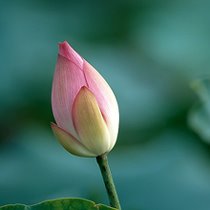On December 7-8th, 8 of us went to the Bodhi Center and conducted our first retreat. During the car ride to the center we had fun getting to know each other. We played a few games, one of which involves filling in the blanks of a personal biography:
Hello, my name is ____. I am ____ years old and I am majoring in ____. My hometown is ____ and I really ____ it there because ____. I always dreamed that someday I would ____, and that dream has ____ true. I feel ____ about it now! Some things I like to do include ____. There are many things I am good at and one of them is ____. I did a really interesting once and that was ____. My family consists of ____. If I could change one thing about myself it would be ____. Still, I am really glad to be here right now because ____. I would really like to get together with anyone who would be interested in ____. The one thing I want to be remembered for is ____. As far as future plans are concerned, I hope to be ____ someday.
Upon our arrival at ABC, we were welcomed by Venerable Hung-I who was unfortunately unable to stay with us during the retreat. The first day was very lax as we played the game Truth, Truth, Lie in which we were supposed to disclose two truths about ourselves and one lie, while everyone else had to guess which one of the 3 was the real lie. Well, we came to the conclusion that most of us were terrible liars. :) That's good news for ABS meaning everyone is holding on to the fourth precept (abstaining from harmful speech or lies).
Dinner was absolutely amazing! And this is no lie. We had BBQ veggie kebabs. The sausages looked so real that I think I liked them more than actual meat and it's healthy too! Sitting around the campfire we told ghost stories and gazed at the fireflies in the sky (stars) and "pretended" to know where the constellations were.
After such a hardy meal, we went inside and played Cranium. We were such an advanced group that we didn't even need to follow the directions. We played it our own way, which was by far more entertaining! I laughed so hard my stomach hurts and I started rolling on the ground as if I had an epileptic seizure.
Even though the noble silence didn't start until the following day, some of us just couldn't wait so we began the noble silence at 10 PM. In fact we got so used to being silent that most of us really didn't feel like talking after the noble silence was broken. This is true for both introverts and extroverts.
Overall the retreat was very successful. However we do have some unfortunate news. At the end of the retreat Venerable Jian Dan resigned his position as our Dhamma Teacher. Currently we are trying to figure out who would be able to replace the Venerable. What do you all think? Should we invite monks from other temples to lead our meditation? If so, must we invite different monks every sitting or the same monk for the entire semester? Or would a facilitator suffice? Would we all benefit from a group discussion led by a facilitator or a lecture from a monk or Dhamma teacher? Your inputs are greatly appreciated. Remember we really can not function without your thoughts and opinions.









 Click to see more Class 8 pictures
Click to see more Class 8 pictures

 click to see more class 7 pictures
click to see more class 7 pictures

 Click to see more pictures of Zen Center visit
Click to see more pictures of Zen Center visit










